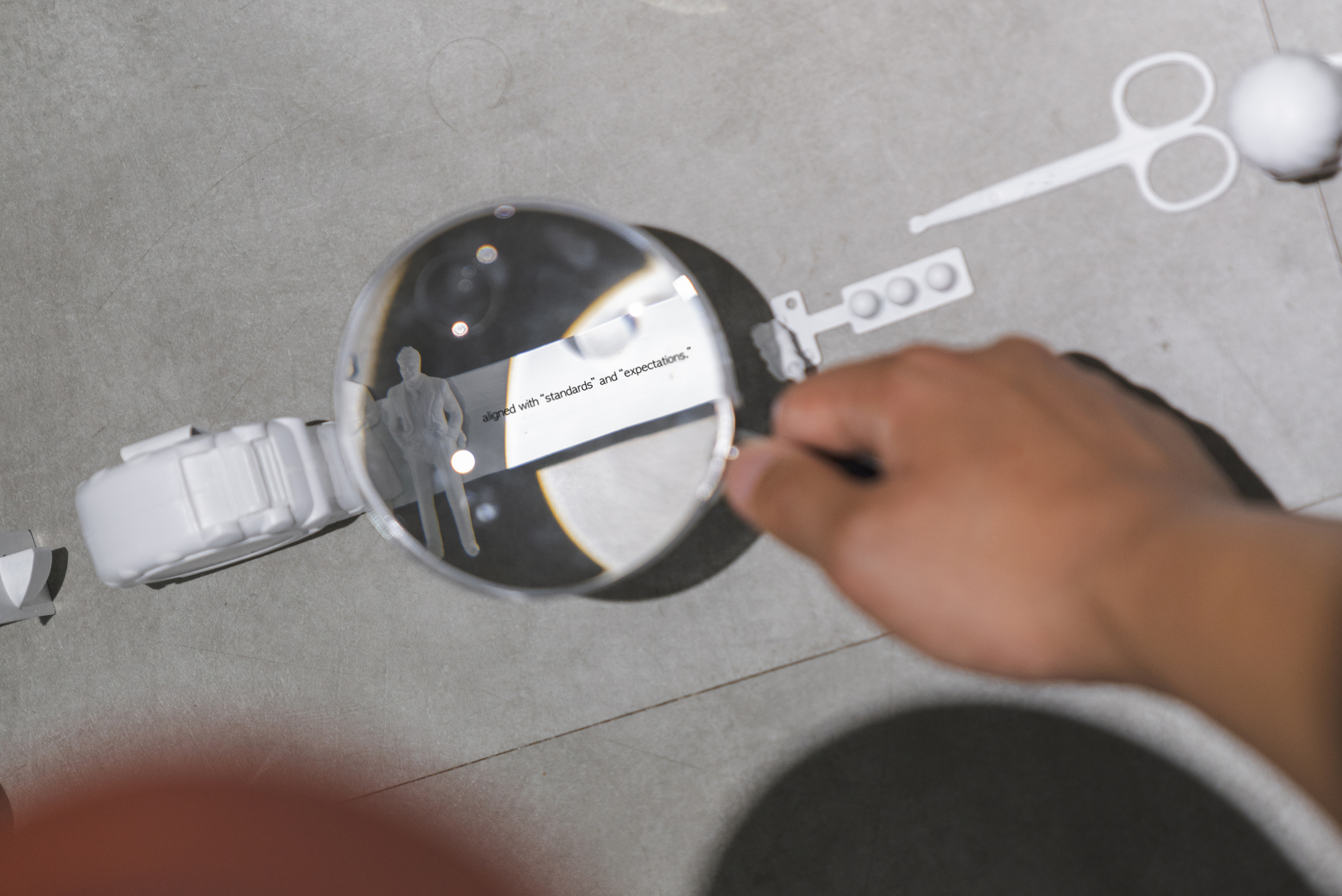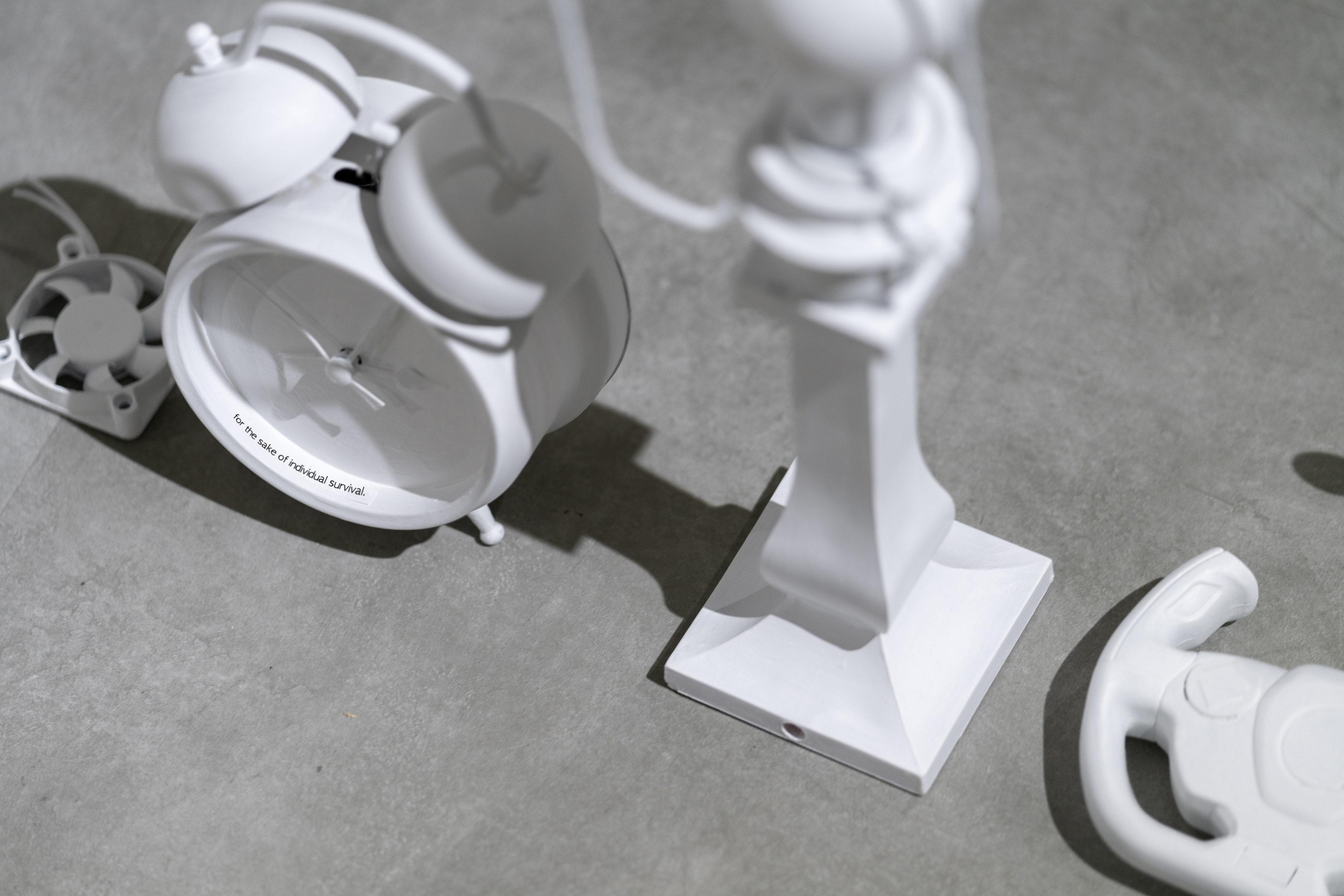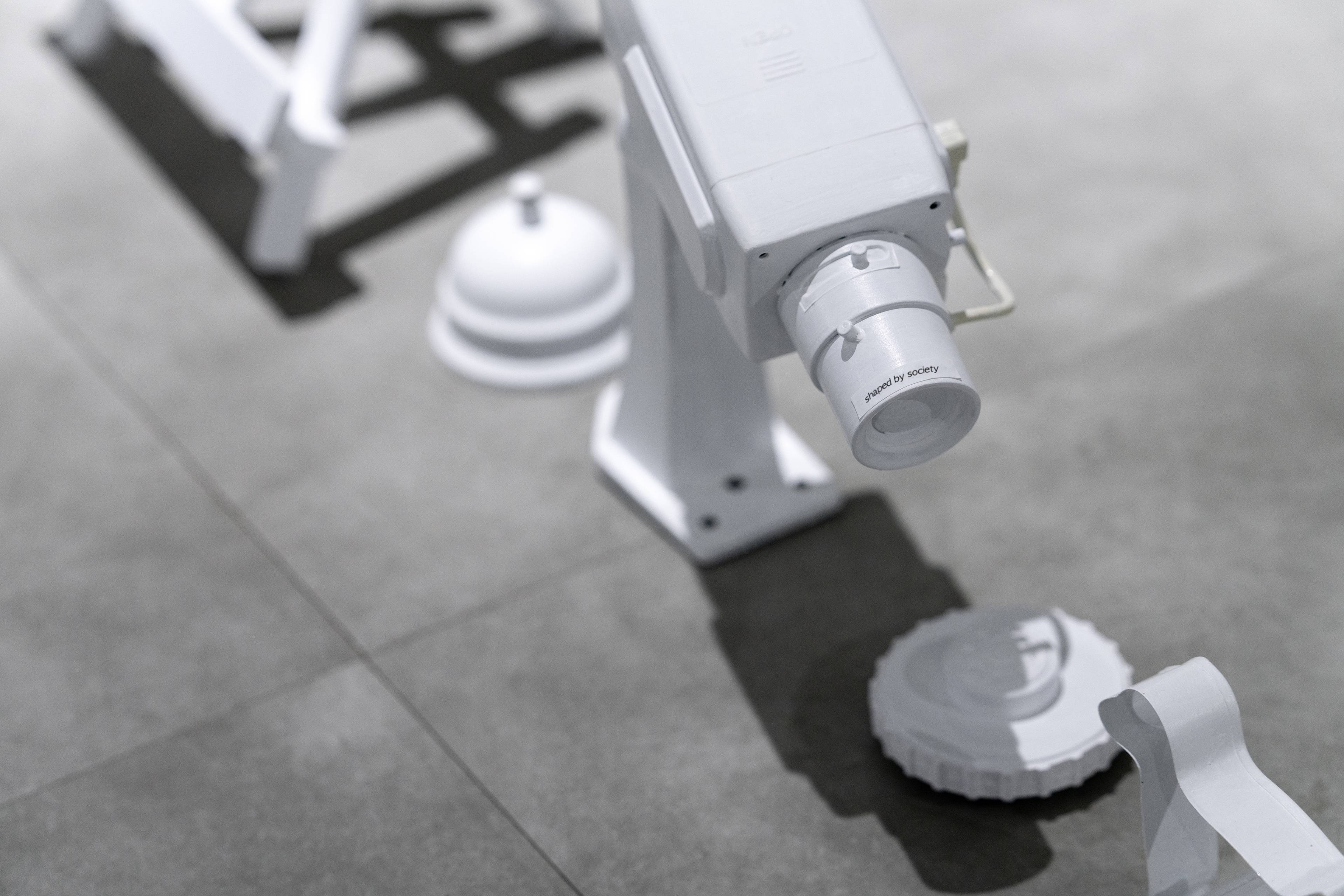개별적 사연들(Individual Episodes), 2022
Individual Episodes, 2022, Variable Dimensions, the objects in the <Re-Cover Project>, printed texts
〈Individual Episodes〉는 〈Re Cover Project〉를 위해 수집되고 재구성된 오브제들로 이루어진 미로형 설치 작업이다.
관객은 돋보기를 들고 미로를 따라 이동하며, 오브제의 표면에 숨겨진 짧은 문장들을 찾아 나선다. 이 ‘찾기’의 행위는 관객의 움직임과 시선을 느리게 만들며, 이동 속에서 자연스러운 멈춤의 순간을 만들어낸다.
숨겨진 문장들은 한눈에 드러나지 않는다.
가까이 다가가고, 시간을 들이며, 주의를 기울일 때에만 읽을 수 있다. 이 과정은 오브제를 하나의 집합이 아니라 각각 고유한 존재로 마주하게 하며, 개별적인 이야기와 목소리에 대한 인식을 불러일으킨다.
이 흰색 오브제들은 한때 사회 안에서 공유되고 사용되던 익숙한 물건들이다.
〈Re Cover Project〉를 통해 이들은 변형되어, 우리 사회를 구성하는 개별 인간들을 상징하는 존재로 다시 등장한다. 흰색은 정체성과 기능의 흔적을 덜어내는 동시에, 관객의 기억과 감정, 개인적인 연상이 스며들 수 있는 여백으로 작동한다.
미로를 따라 이동하는 동안, 흰색은 하나의 연결 매개가 된다.
관객 자신의 삶과 오브제에 남겨진 미묘한 흔적들이 교차하며, 각 존재가 비교나 평가 없이 그 자체로 인식될 수 있는 공간이 형성된다. 이 작업은 주의를 기울이는 행위가 곧 인식과 돌봄의 시작이 될 수 있음을 제안한다.
〈Individual Episodes〉는 집단 속에서 쉽게 놓쳐지거나 균질화되는 개인의 이야기를 다시 바라보도록 요청한다.
관객은 미로를 걷는 동안, 무엇을 발견하고 무엇을 지나쳐왔는지 스스로에게 질문하게 된다.
-
<Individual Episodes> is a maze like installation composed of objects gathered and reworked for the <Re-Cover Project>.
Viewers move through the maze holding a magnifying glass, searching for short phrases hidden on the surfaces of the objects. This act of searching slows the viewer’s movement and attention, creating moments of pause within the act of walking.
The hidden texts are not immediately visible.
They can only be read by approaching closely, spending time, and paying careful attention. Through this process, the objects are encountered not as a collective mass, but as singular presences, prompting reflection on individual stories and voices.
These white objects were once familiar items, shared and used within society.
Through the <Re-Cover Project>, they are transformed to symbolize individuals who make up our collective world. White functions as a space that softens traces of identity and function, while simultaneously allowing personal memories, emotions, and associations to emerge.
As viewers navigate the maze, white becomes a medium of connection.
The viewer’s own life intersects with the subtle traces held by the objects, creating a space in which each presence can be recognized without comparison or evaluation. The work suggests that paying attention itself can become a starting point for recognition and care.
Individual Episodes asks viewers to reconsider the individual stories that are easily overlooked or flattened within collective structures.
As they walk through the maze, viewers are invited to reflect on what they notice, and what they quietly pass by.

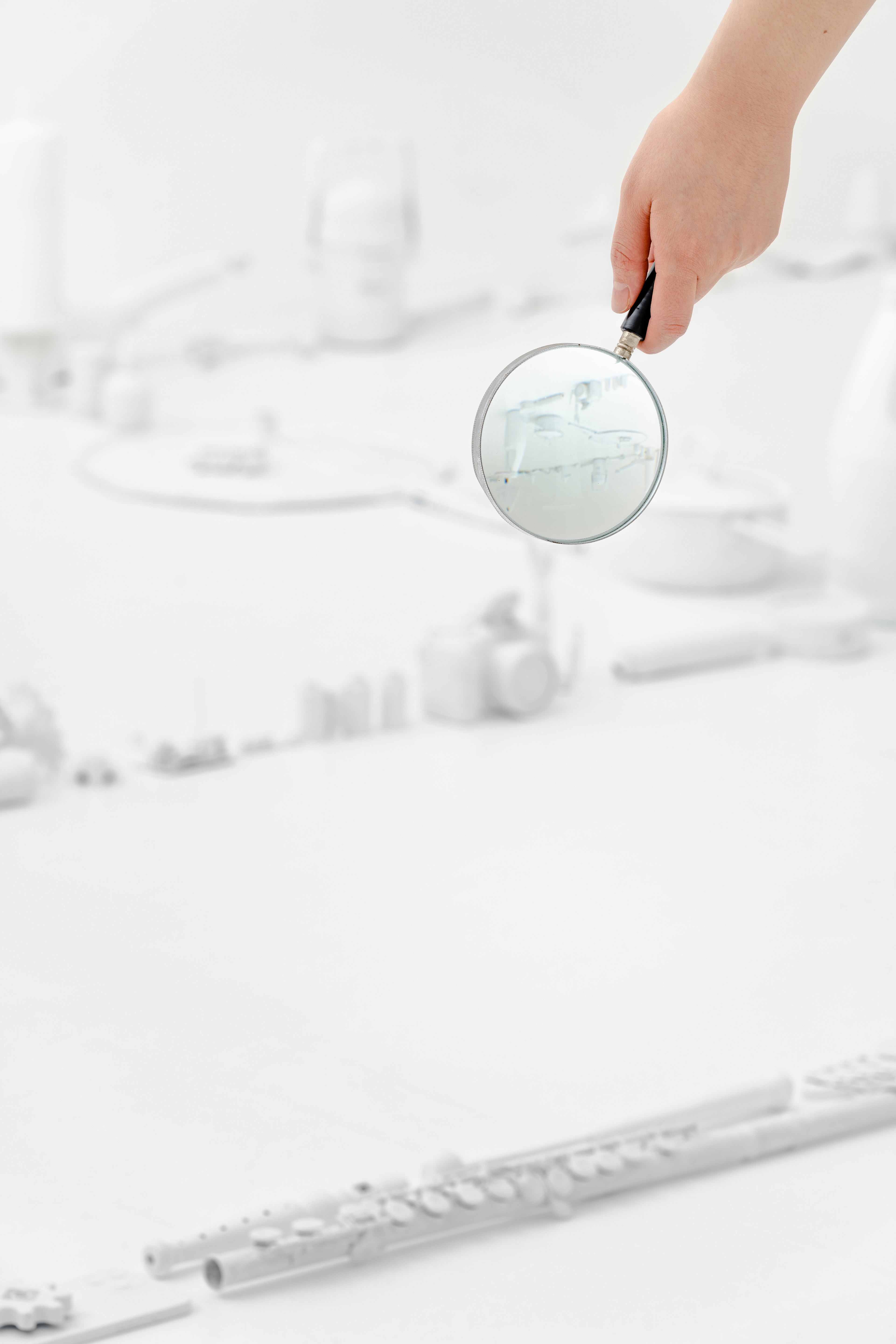


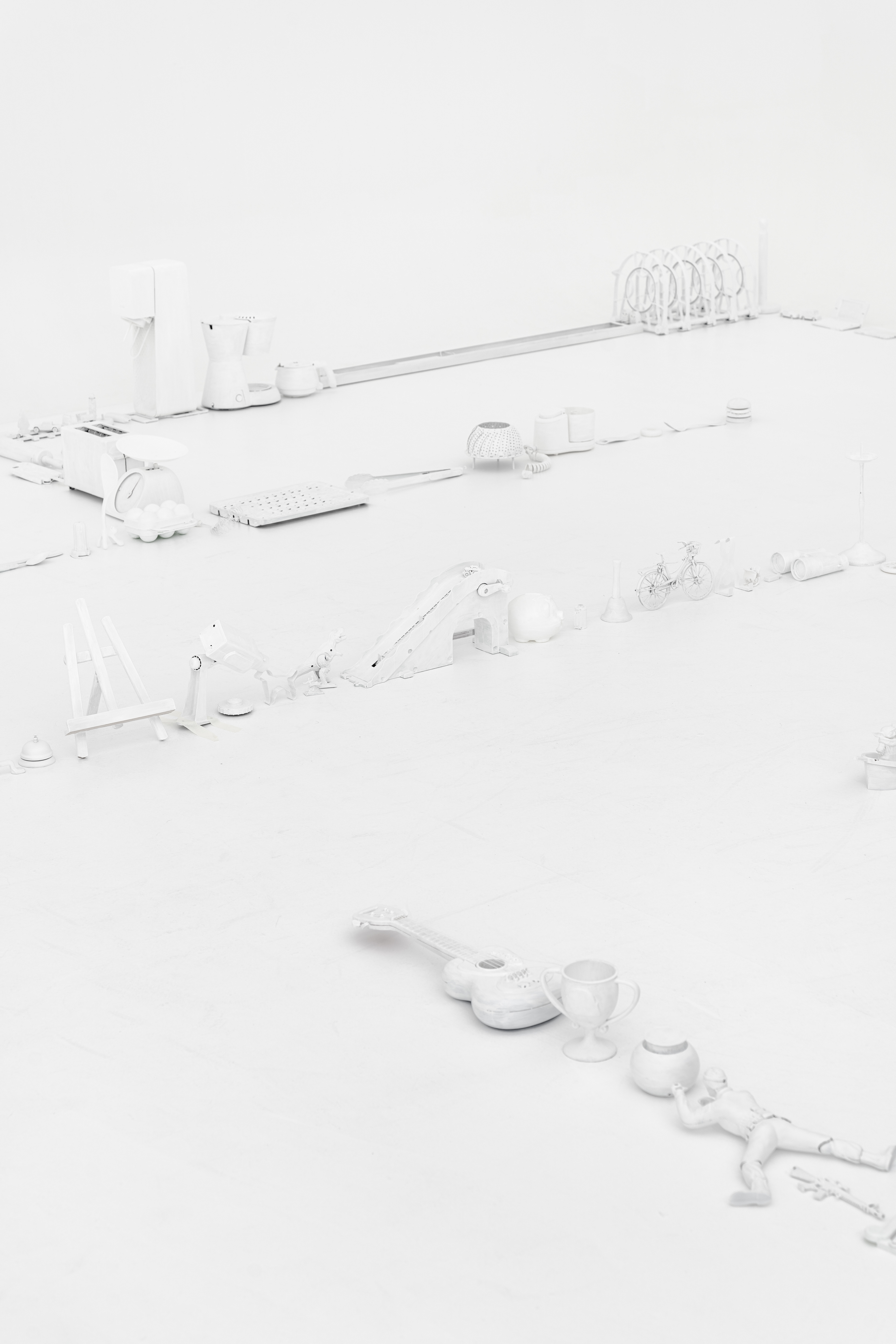
작업 속 텍스트 )
지금 이순간도 어떠한 "기준"에 맞추기 위해 노력하는 사람들에게.
세상에는 절대로 와해될 수 없는 지배와 피지배의 관계가 존재한다.
그렇다면 인간의 삶 속 불가피하게 부지런히 쫓아야하는 사회는 지배의 위치인가 혹은 피지배의 위치인가.
태어나는 순간부터 본인의 의지와 상관없이 사회적 관계는 형성된다.
그렇다면 개인은 피지배의 위치에 놓이는 것일까.
개별적인 관계들은 어느 순간 집단적으로 변모되어 있으며 순차적인 규모의 확장을 거듭한다.
우리의 일상과 삶의 방식은 사회에 침윤된 채, 그것에 둘러싸여 영위하는 것이다.
우리 자신 또한 사회로부터 구성되어 왔다.
우리는 사회가 우리를 갈아 끼우고 소비할 때에도 그 사회란 것의 부산함과 완강함, 그리고 무게를 경험한다.
모든 국면에서 우리는 인간적인 고안에 의해 빚어진 여러 사회에 속해지며
개인의 생존을 위해 나날을 구조화하는 그것의 자연적 힘들을 견뎌 나간다.
어떠한 조직과 그 속에 소속된 개인은 동등하게 상생할 수 없는 것일까.
사회화라는 일반적이고 보편적인 교육 방식이 한 개인의 고유한 성향이 자리 매김 하는데 방해가 되는 것은 아닌가 고민한다.
우리는 사회가 만들어낸 시선을 따르기 위해 부단히 노력한다.
유치원을 가고, 학교를 가고 입학 한 이후로 몇년동안 경험하게 되는 단체생활과 공 또는 사교육,
졸업 이후 입사한 직장에서 수동적, 반복적으로 맞추게 되는 수많은 기준들과
‘나’를 감추고 ‘기준’과 ‘시선’에 맞는 사람으로 거듭나야하는 인고의 시간,
이 모든 것들이 과연 개인의 정서와 성향에 조금이라도 눈을 맞추어주고 있기는 할까 궁금하다.
물론 이처럼 보편화된 사회의 모습과 그것을 개인으로 하여금 부지런히 쫓아 가게 만드는 역할이
그간의 역사 속에서 가장 효율적이며 다수의 구성원이 납득 가능한 수준에 맞추어
사회 제도와 문화가, 그리고 시선과 기준이 정립된 것 이겠지만 아쉬움이 많이 남는다.
우리가 사용하는 공산품의 품질, 모양, 성능 등이 일정한 기준에 따라서
즉, 사회가 요구하는 틀에 맞춰 준비되어 나온다. 그야말로 레디 메이드 인생
우리는 사회에 속하는 순간부터 특정한 규율에따라 우리 자신을 끼워 맞춘다.
우리의 일상 속에서는 놀 때, 밥먹을 때, 공부 할 때, 잠을 잘 때.
그리고 사회적 타임라인에서는 학교에 가야할 때, 취업을 해야 할 때, 결혼을 해야 할 때를 배워서
몸을 그 틀에 맞춘다.
자신의 신체를 자의로 움직이고 사용하는 것을 자유로운 활동이 아닌 일탈로 간주하는 사회의 기준선.
규율을 지키기와 길들이기.
우리가 몸을 움직이는 방식은 모두 일정한 리듬과 속도로 정해져 있다.
인간은 원래 해가 지면 잠에 들고 해가 뜨면 잠에서 깨지만
산업화 이후 우리는 기계의 주기에 맞춰서 생활하는 모습을 보인다. 기계가 켜있는 한 움직이고 깨있게 된다.
우리는 스스로를 회복시킬 수 있는 시간 조차, 기력조차 일 하는데에, 분주히 사회 구성원이 되기 위해서 끌어다 쓰고있지않나.
레디메이드 인생이다.
우리의 자아를 기성품처럼 어떠한 기준과 체계, 사회 또는 환경적 요인으로 하여금
섣불리 규정하고 분류하는 것이 아니라, 스스로 자신의 정체성을 만들어 갈 수 있도록,
우리 모두 기준에서 내려와
눈을 낮춰 시선을 맞추고 하나하나 들여다 보기를.
Embedded Text )
To those who, even at this very moment, strive to meet certain “standards.”
In the world, there exist power relations between the dominant and the dominated that can never be fully dismantled.
If so, is the society that we must inevitably pursue with diligence in our lives positioned as the dominant—or the dominated?
From the moment we are born, social relationships are formed without our will.
Does this mean that the individual is placed in the position of the dominated?
Individual relationships, at some point, transform into collective ones, repeatedly expanding in scale.
Our daily lives and ways of living are permeated by society, surrounded by it on all sides.
We ourselves have also been shaped by society.
Even when society replaces and consumes us, we experience its busyness, its stubbornness, and its weight.
In every phase, we belong to various societies shaped by human design, enduring their natural forces that structure our days for the sake of individual survival.
Is it impossible for any organization and the individuals within it to coexist as equals?
I wonder whether the generalized, standardized processes of socialization obstruct the formation of a person’s unique disposition.
We make relentless efforts to follow the gaze society has created.
We attend kindergarten and school; for years we undergo collective life and public or private education.
After graduation, at our workplaces, we passively and repeatedly conform to countless standards.
We endure the time of concealing the “self” to become a person aligned with “standards” and “expectations.”
I question whether any of this truly meets the emotional and personal needs of the individual.
Of course, such a standardized form of society, and the role it plays in making individuals diligently follow it, must have been established through history as the most efficient way—at a level acceptable to the majority—to form social systems, culture, perspectives, and standards. Yet, a sense of disappointment remains.
Just as the quality, shape, and performance of the goods we use are prepared to meet fixed criteria—in other words, to fit into the mold demanded by society—so too are our lives ready-made.
From the moment we belong to society, we fit ourselves into certain rules and norms.
In our everyday lives—when we play, eat, study, or sleep—and on the social timeline—when we are “supposed” to go to school, find employment, or get married—we learn to shape our bodies to fit these molds.
A society that considers moving and using one’s own body by choice not as free activity but as deviation; a society of discipline and conditioning.
The way we move our bodies is always set to a certain rhythm and pace.
Humans once slept when the sun set and awoke when the sun rose,
but since industrialization, we have lived in sync with the cycles of machines—remaining awake and in motion as long as they run.
Do we not use even the time and energy we could devote to restoring ourselves for nothing but work, and to keep up with the demands of being a member of society?
A ready-made life.
Rather than hastily defining and categorizing our identities like a manufactured product—
through certain standards, systems, or environmental forces— let us be able to shape our own identities.
Let us all step down from the pedestal of standards,
lower our gaze to meet one another’s eyes,
and take the time to look closely, one by one.
⇩ Exhibition View



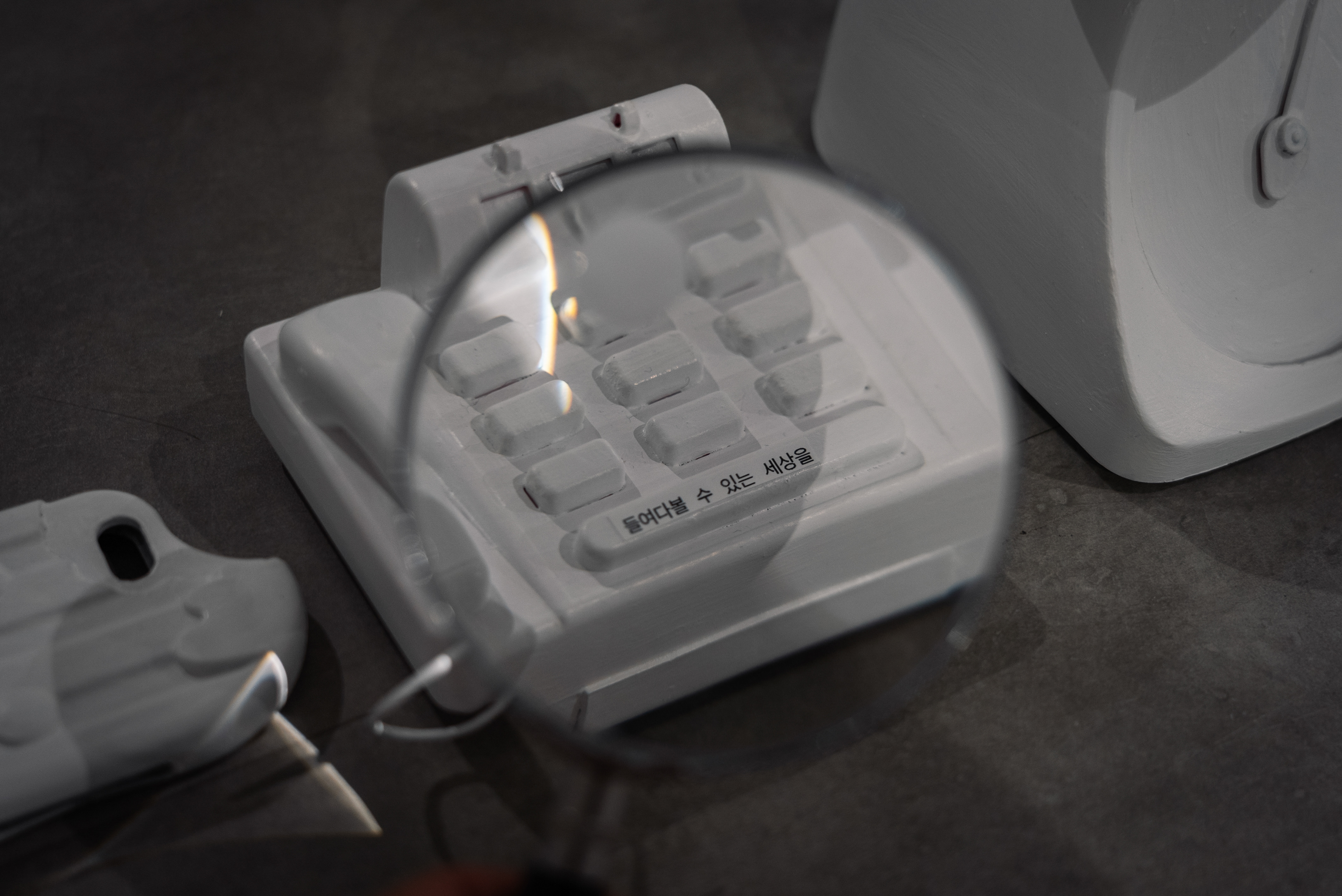

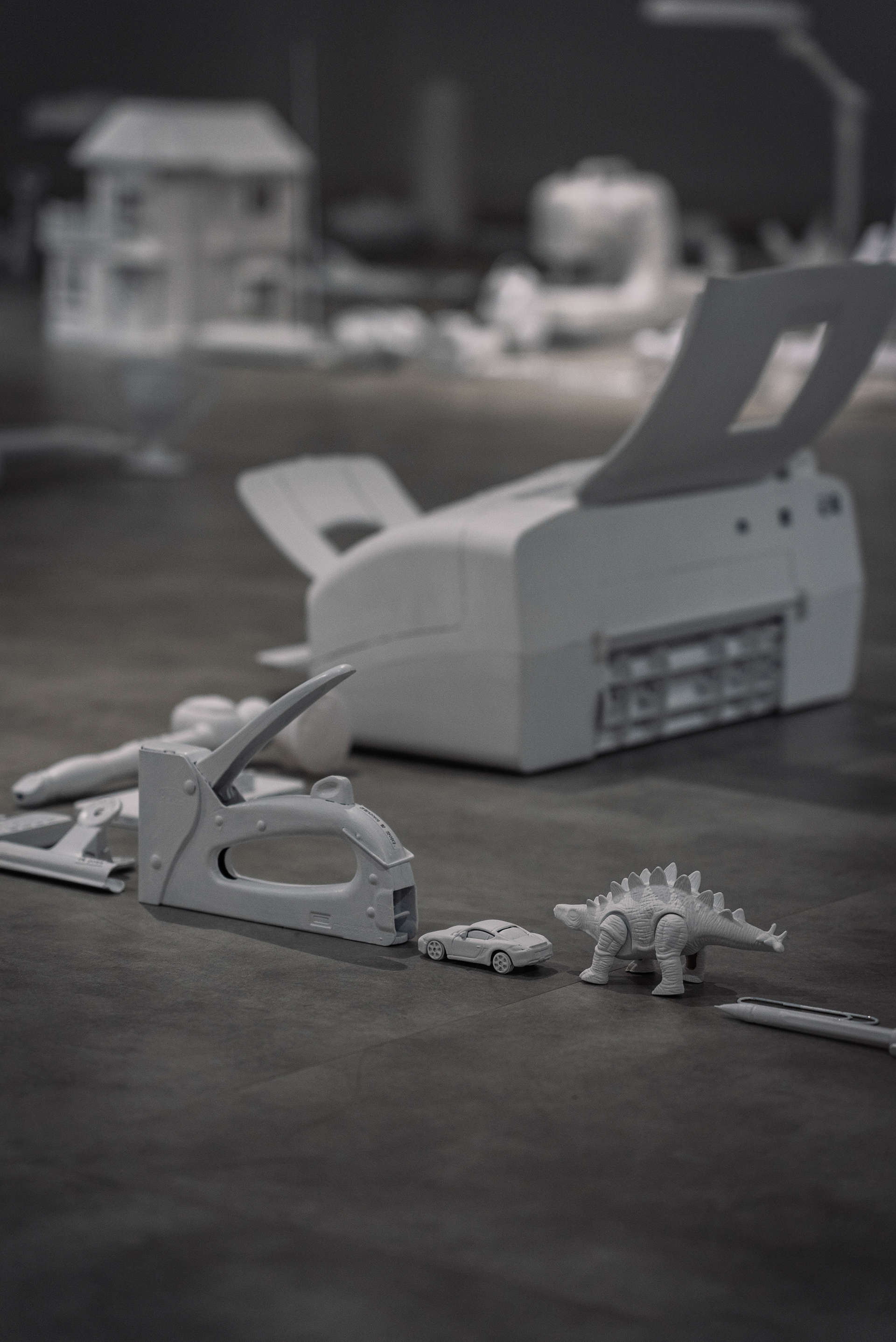
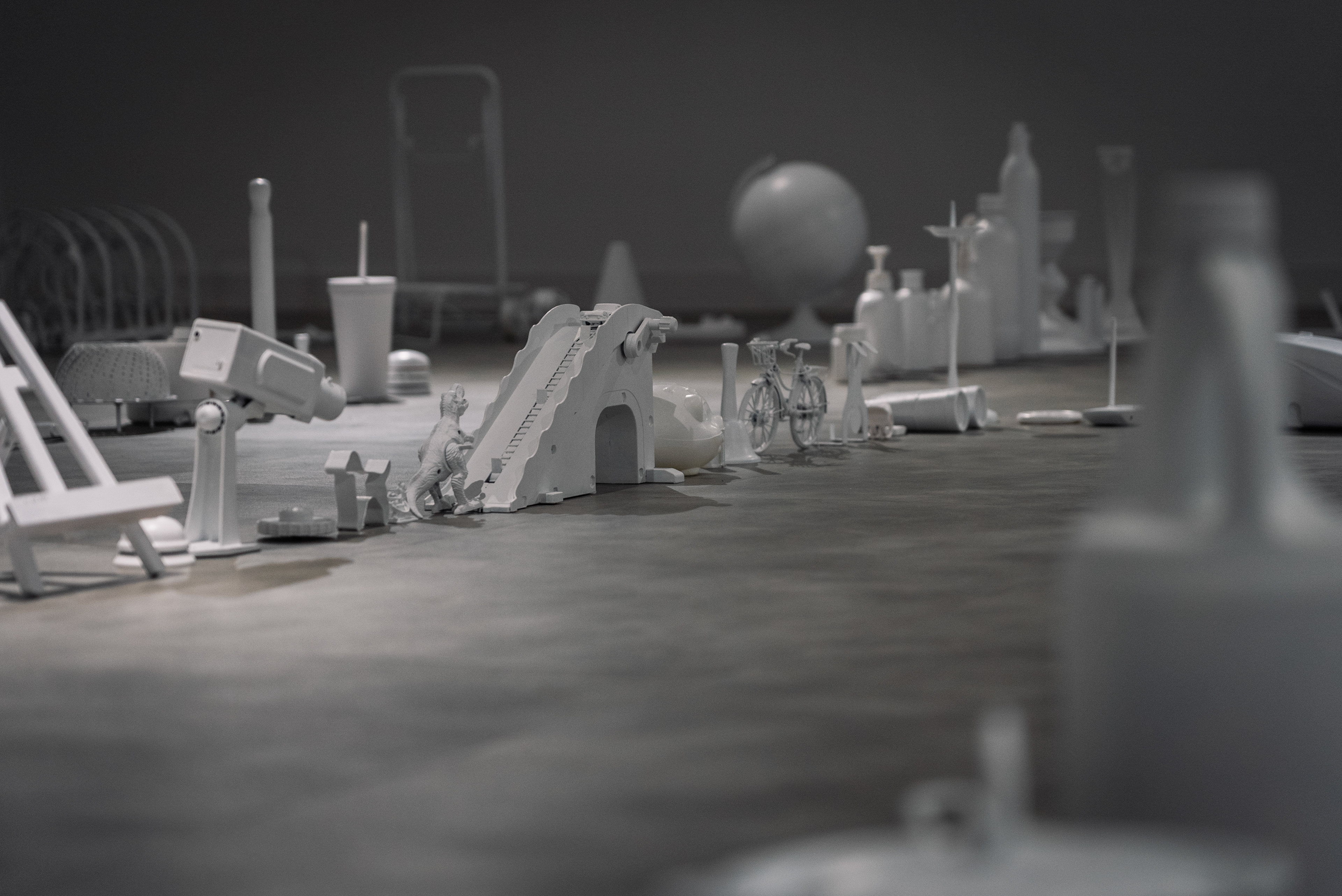
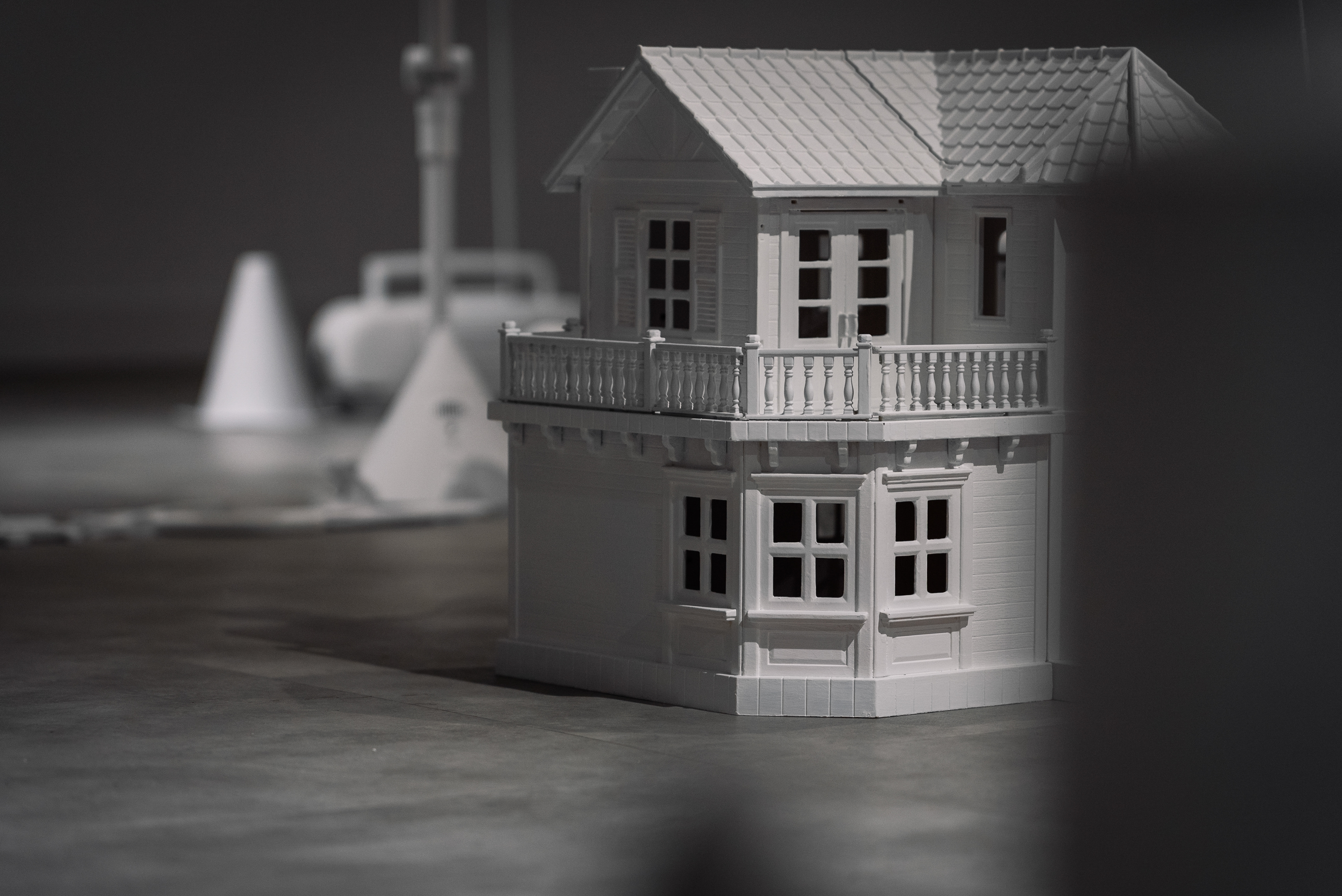
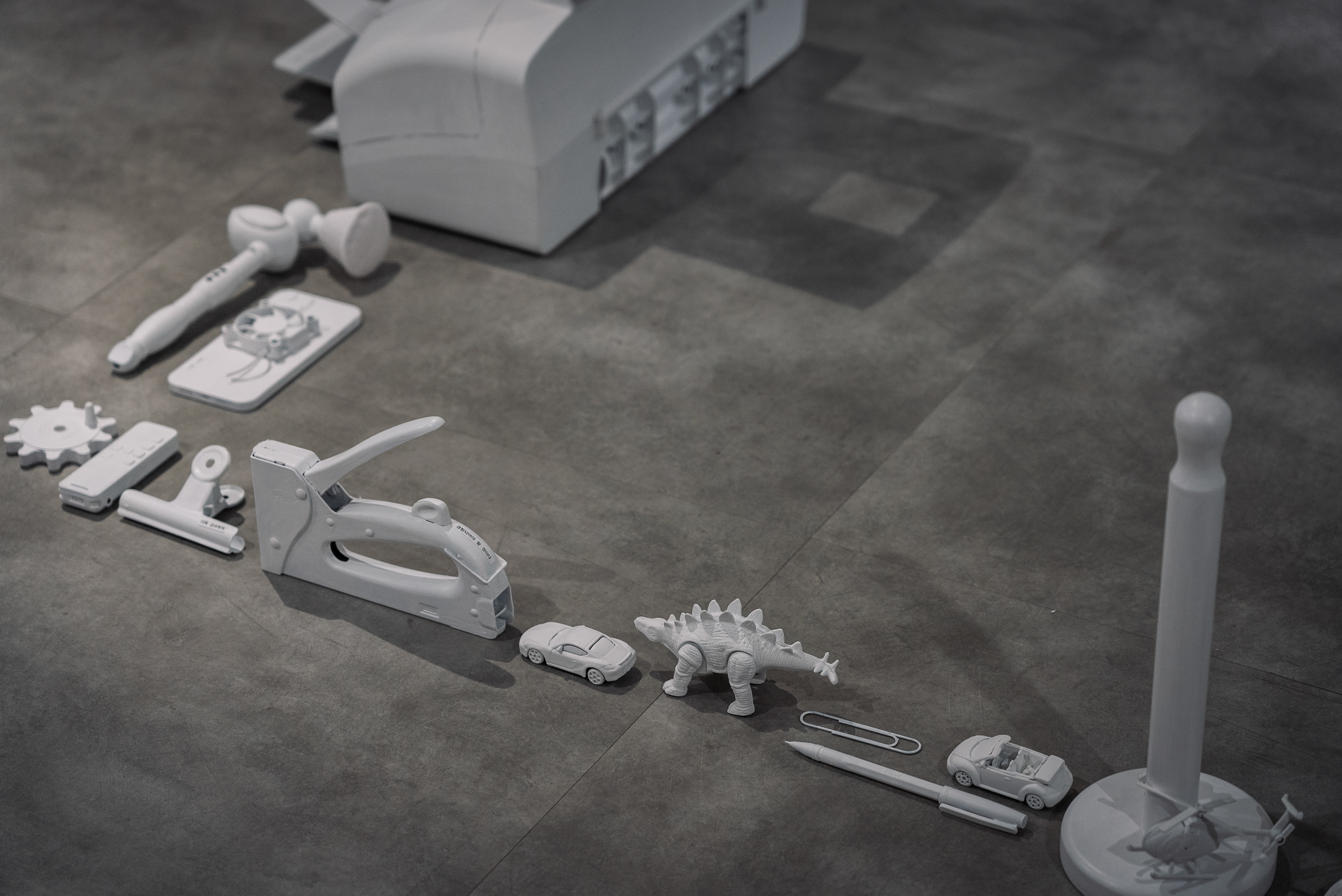
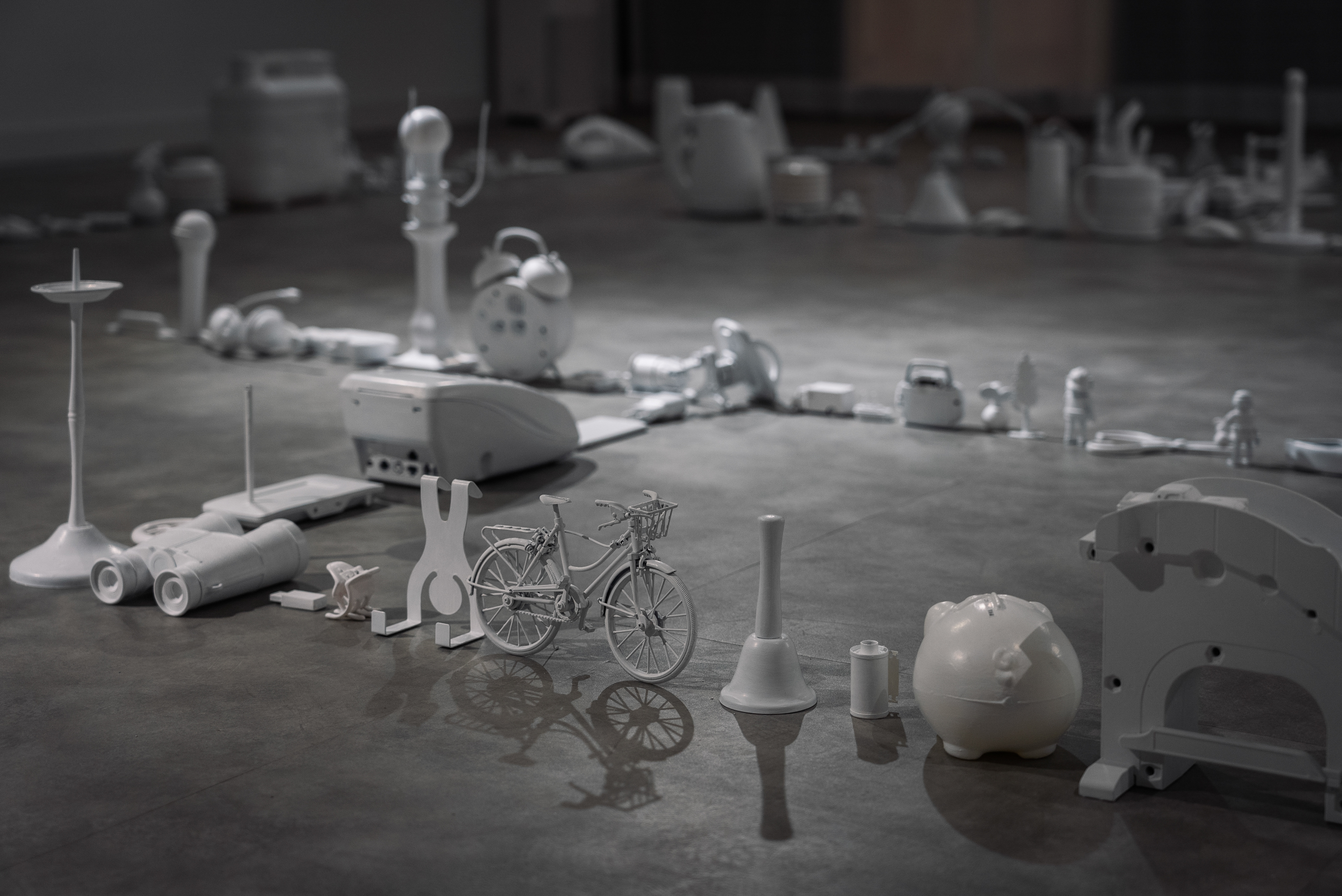

⬇ Eng ver.
